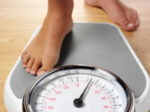 Spending hours behind the wheel is a huge recipe for weight gain and it affects us all.
Spending hours behind the wheel is a huge recipe for weight gain and it affects us all.
In New Zealand around 2.7% of the working population drive for a living.(1) Trucks, taxis, forklifts, ambulances, delivery vans etc could not be moved without those drivers. When you add to this all the farmers on tractors, mothers delivering children to school, salesman driving around the country- we all spend a lot of time behind the wheel of a motor vehicle.
The majority of professional drivers get the chance to exercise when they are loading, unloading, inspecting their vehicle or taking meal breaks.
Here in New Zealand the hours that transport workers are allowed to work is heavily regulated and drivers have to be licensed, fit to drive and follow the traffic rules. After 5.5hours at the wheel for truck drivers (7hours for taxi drivers) they are required to take at least a 30minute break. Taxi drivers often have breaks waiting around for fares, but if one trip is longer than 100km they also are required to take a break after 5.5hrs.(2)
After driving a maximum of 13 hours truck drivers must have a ten-hour break. How they spend this break time will depend on their circumstances. Not all of this break time is spent catching up on sleep as many of these workers also have family tasks to attend to. So fatigue can be a real problem
But can all this sitting be good for our health?
The Health risks of driving for a living
In Australia a survey by the Department of Health and Ageing in Queensland this year has found that transport workers had elevated levels of high risk factors associated with chronic diseases such as heart disease, high blood pressure, lung cancer, stroke, sleep disorders and diabetes.(3)
Weight gain
The Queensland study found that 82.5% of drivers studied were overweight or obese. While 79.8% of those studied had low physical activity and 57.3% also had an inadequate fruit and vegetable intake. Fried foods, pies, confectionery and snacks purchased at wayside stations are often the staple diet of those “on the road”. As the intake of dietary fibre becomes reduced digestion and bowel function can become compromised. These factors along with a diet containing increased levels of salt and saturated fat become a recipe for heart disease.
Although the alcohol consumption of professional drivers is just as limited by the road laws as for any other driver the Queensland study found that 31.2% of those studied recorded an unhealthy consumption of alcohol. Not only would this have increased their energy intake but also their risk of accidents
Sleep disorders
When weight is gained, particularly around the abdomen, lung capacity is reduced and breathing becomes shallower and more laboured. A lack of oxygen supply to the brain slows mental functioning and adds to fatigue. Also as weight is gained around the neck, throat and tongue it becomes more difficult to get a good night’s sleep. The sufferer often wakes through the night with snoring and sleep apnoea. Breathing problems are not helped by smoking and yet the Queensland study found 28.5% of the transport workers studied to be smokers.
Diabetes and heart disease
When a person sits for long periods of time, their heart rate slows down as well as the blood flowing around the body. Blood begins to pool in the extremities leading to swollen and numb legs and ankles which increases the risk of developing blood clots and varicose veins in the legs.
The risk of diabetes increases as blood glucose levels rise due to inactivity.
Skeletal change
Long periods of sitting require that the driver endeavours to hold the trunk of their body, neck and shoulders in a fixed position. This leads to bad posture. It also increases localized tension on the spine, lower back and neck and leads to a steady compression of the spinal discs. As delivery of nutrition to these discs becomes compromised, premature degeneration occurs.
Arthritis
A lack of muscle movement also contributes to a higher index of C-reactive protein. This triggers inflammatory diseases such as rheumatoid arthritis.
Dehydration
Drivers often report that they try to limit their intake of fluids because of toileting concerns. Unfortunately a reduced fluid intake leads to dehydration (particularly in summer) and increased feelings of fatigue.
An aging workforce
The Queensland study noted that the transport industry has an ageing workforce with 46% of workers over the age of 45 years. This places almost half of workers in an age group that already have a higher rate of injury and illness than younger workers.
The researchers concluded that without intervention to improve and maintain the health of workers, there is an unmanaged risk and significant cost to business through the impact of absenteeism and lost productivity. Not to mention the increased risk of vehicle accidents bought on by undiagnosed, untreated medical conditions such as heart disease and sleep disorders” (3)
10 Tips to improve the nutrition of drivers
All drivers need to be made aware of the risks to their health of sitting for long periods of time. Observing the following ideas may help to improve health outcomes.
- Always start the day with a healthy breakfast of cereal, fruit, toast and some protein such as an egg or cheese slice or a pottle of yoghurt.
- Aim to drink at least 2x 750ml drink bottles each 5 hour shift and in the afternoon arrange to stop for a trim milkshake or trim latte.
- During your breaks endeavour to exercise. Even if you have to stay near your vehicle walk around, jog on the spot, use a skipping rope.
(Recently we heard of a “truckie” with a portable treadmill which he just set up on the pavement beside his cab and jogged during his lunch hour. Well Done. What a guy!). - On “days off” join a gym; take up golf; join a sports team; set a weekly exercise routine and aim for 5 hours a week minimum.
- If travelling long distances for work or on holiday, take the time to take a packed lunch or, if time permits, a chilly pack with ingredients for you to stop and make up a sandwich or roll as you go. This will give you better control of your fat and sugar intake
- Avoid eating confectionery and adding sugar to drinks. Just 2 paper wrapped lollies (or two teaspoons of sugar in your cup of tea) carries as much carbohydrate as a slice of bread. So it’s not hard to eat the equivalent of a loaf of bread it you eat your way through a bag or two of lollies. Just 600mls of soft drink is equivalent in carbohydrate to 5 slices of white bread.
- Choose healthier snacks. Replace the cakes, savouries, crisps and chocolate bars with fresh fruit or sandwiches.
- Stop smoking
- Endeavour to get at least 8hours sleep each day and if you are overweight and have difficulty sleeping talk to your doctor who can arrange sleep testing for you.
- Have a regular check up with your Doctor of your blood pressure, blood glucose and cholesterol levels as this will provide information for your Dietitian to help you.
If you would like to discuss how your job is affecting your health and a plan to control your weight do contact us today.
References
1. Statistics NZ Census 2013
2. NZ Transport Agency work time and log books.
www.nzta.Govt.nz/resources/fact sheets/02/docs/02-work-time.pdf.
3. WorkCover Queensland. Transport industry. Work health in the transport industry. www.workcoverqld.com.au/transport/articles/work-health-in-the-transport-industry May 2013.































































Leave a Reply